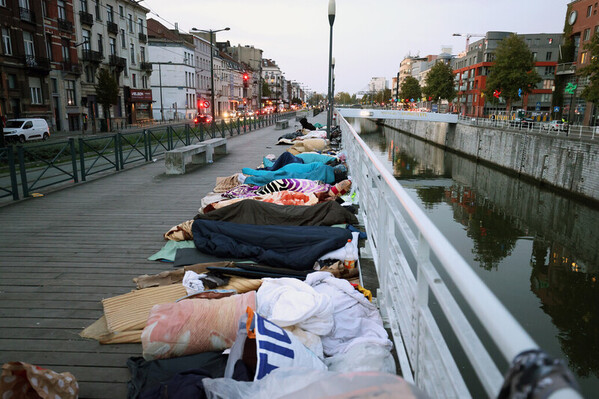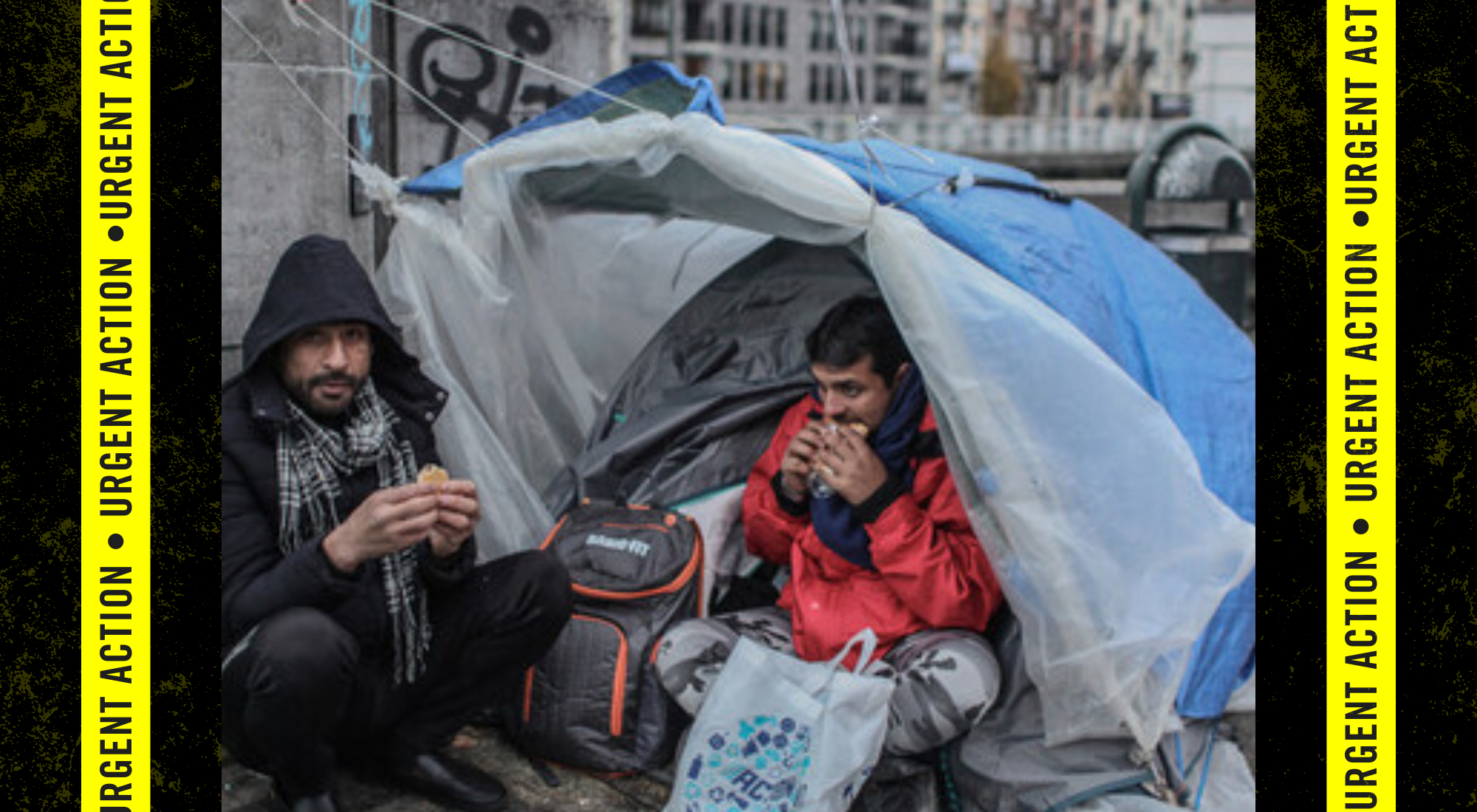Since 2021, Belgium has refused to provide housing and basic services to over 2,500 people seeking asylum. As a result, many—mostly single men—are left without shelter. They sleep on the streets, in tents, or in abandoned buildings.
Belgian courts have ruled over 10,000 times that the government must offer proper accommodation. But the government continues to ignore these decisions.
This crisis is a direct result of government inaction. Belgium must act now. Everyone has the right to seek safety and live with dignity. The federal government must follow the law, respect human rights, and provide the reception services that people urgently need.
Here’s what you can do:
Write to the Minister of Asylum, Migration, Integration and Urban policy urging her to:
- Provide people seeking protection with adequate reception, including safe shelter and essential services.
- Fully respect and comply with national and international court decisions that uphold the human rights of asylum seekers.
Write to:
Minister Anneleen Van Bossuyt
Lambermontstraat 2
1000 Brussels
Belgium
Email: info@migratie-mi.be
X (Twitter): anneleen_vb
Salutation: Dear Minister,
And copy:
His Excellency Patrick Guido M. Van Gheel
Ambassador
Embassy of Belgium
360 Albert Street, 8th Floor, Suite 820
Ottawa, ON K1R 7X7
Tel: (613) 236-7267/ 769-8335 (24h) Fax: (613) 236-7882
Email: ottawa@diplobel.fed.be

Belgium’s ongoing failure to provide asylum reception
Since October 2021, the Belgian government has not provided adequate shelter and basic services to people seeking asylum. It has failed to increase reception capacity, leaving thousands without support. Many sleep on the streets, in tents, or in squats—often in unsafe, unhygienic conditions.
This is not due to a lack of resources. It reflects a lack of political will. The government is not meeting its legal responsibilities under national and international law.
Disproportionate impact on single racialized men
It was cold. […] You can be starving, and no one will know about it. No one will help you.
“Ahmet”
In 2024, Amnesty International spoke with people directly affected by the lack of reception. This included asylum seekers, lawyers, and civil society workers. Single, racialized men are among the most impacted. They are often the last to receive support and the first to be left without shelter.
“Hassan”, from Syria, lived on the streets for months. He slept under the stairs of the asylum registration center at Rue de Pacheco 44 in Brussels. He made a bed out of a wooden pallet:
“At Pacheco 44, the Red Cross is upstairs and … people sleep [under the stairs]. So, I made a bed there and slept there. I found a wooden pallet and I had a five-star bed. For [people seeking asylum], it’s a five-star bed, believe me. It protects you from rain.” Despite his situation, Hassan helped others by translating and sharing basic information.
“Ahmet” and “Baraa”, two Palestinian men from Gaza, arrived in Belgium in September 2024. They stayed in a squat with six or seven people per room. There was no hot water, mattresses, or blankets. Ahmet said: “It was cold. […] You can be starving, and no one will know about it. No one will help you.”
Civil society support and legal obligations
Civil society organizations and human rights institutions have stepped in to offer legal aid, advocacy, and basic support. But their efforts cannot replace what the state is required to do.
Belgium has clear legal obligations to provide:
- Safe and adequate housing
- Access to essential services
- Equal treatment without discrimination
These are set out under the EU Reception Conditions Directive (Articles 19–20) and the International Covenant on Economic, Social and Cultural Rights (Article 11).
Please take action as soon as possible until October 3, 2025. The UA will be duly updated should there be the need for further action.

























